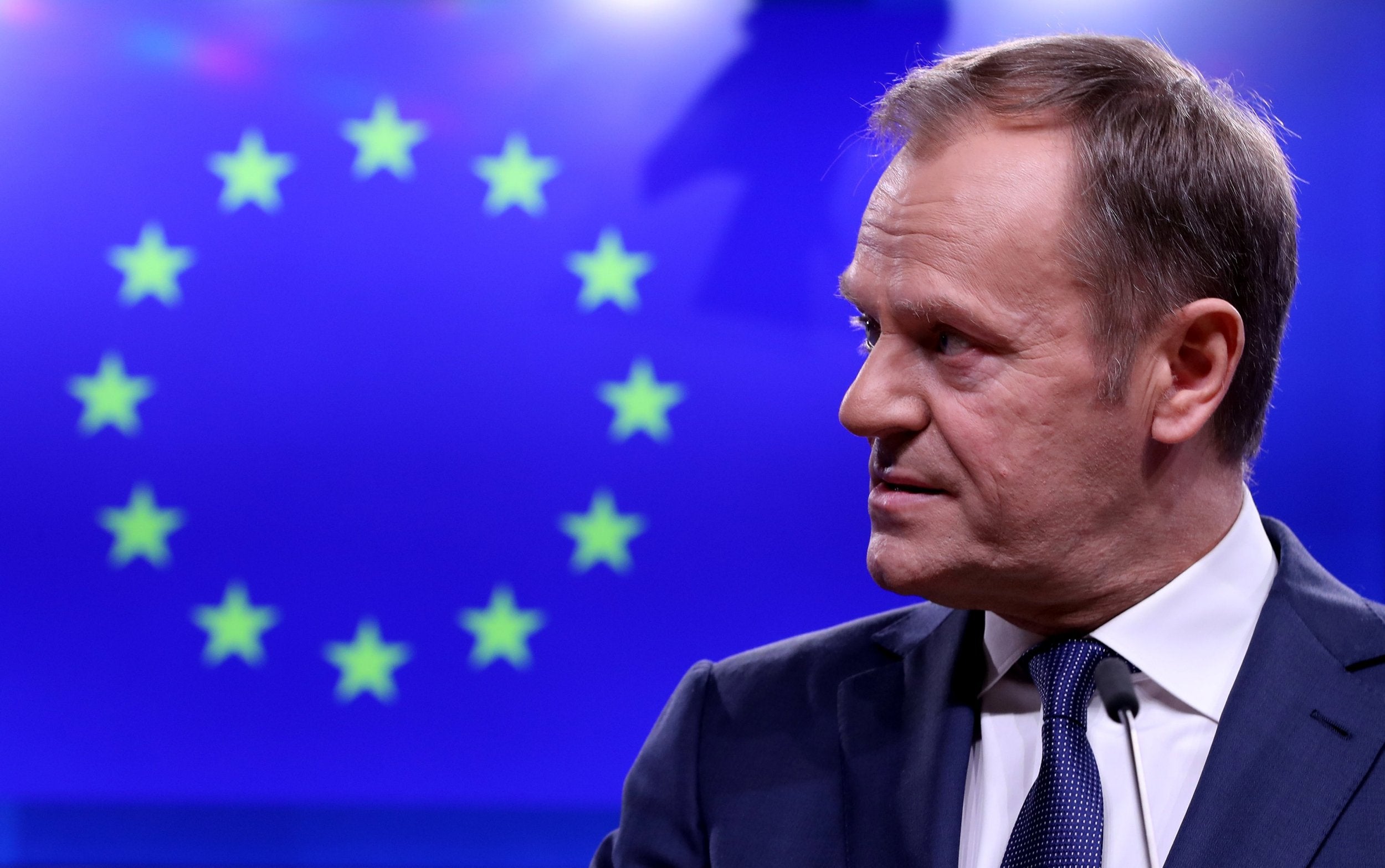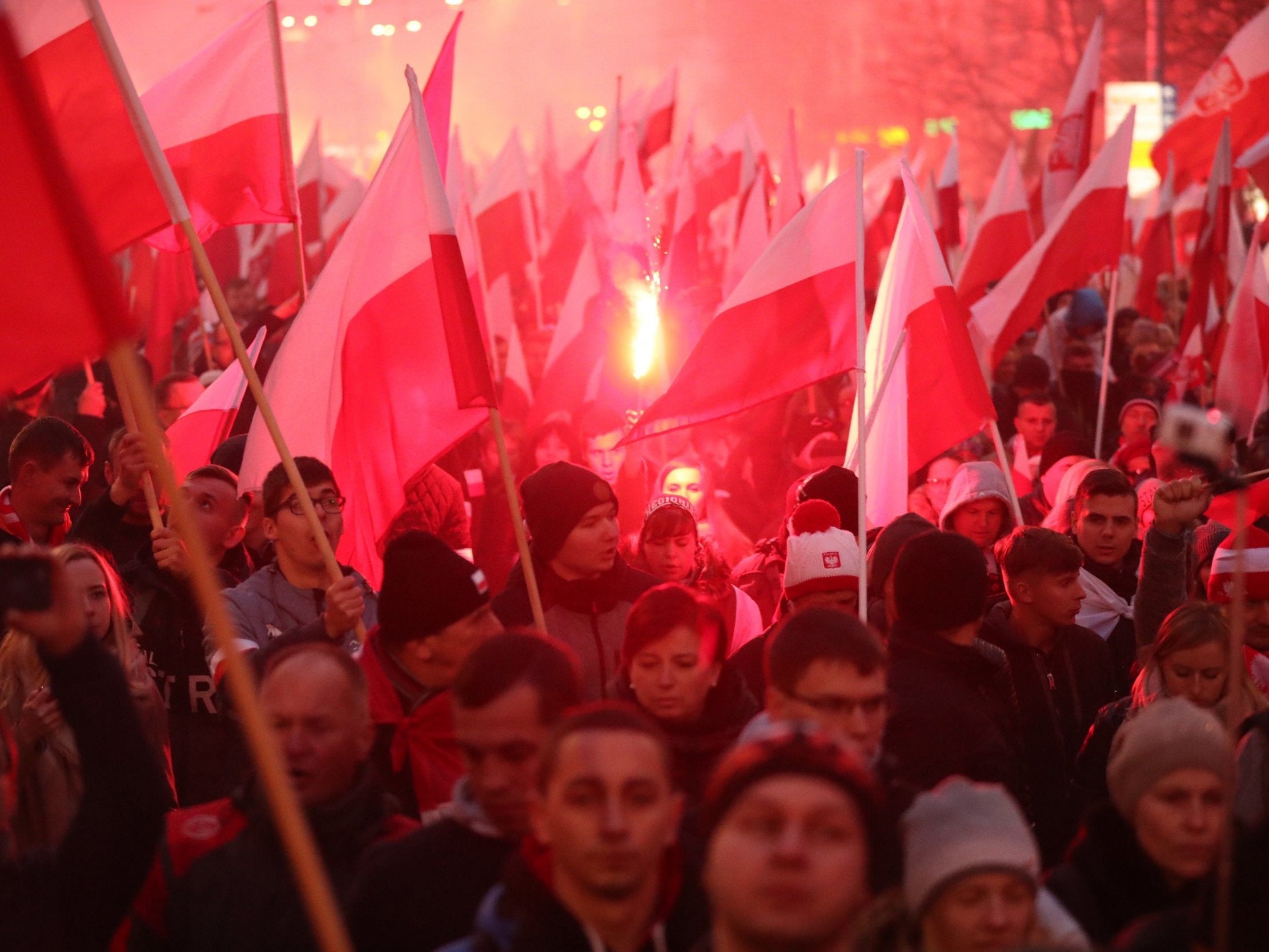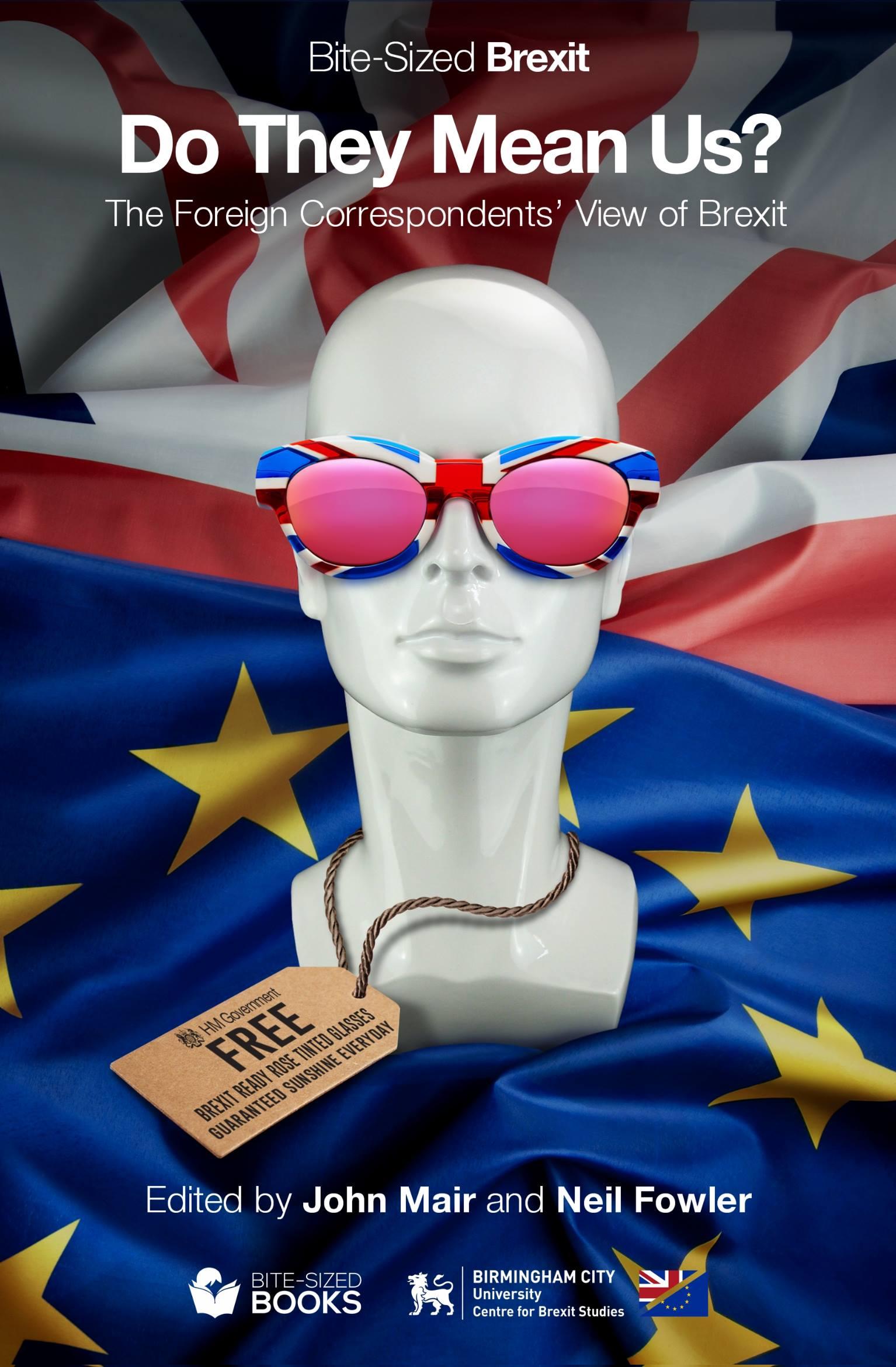Forget Brexit, it’s Poland that Brussels should be worried about
As Poles become disillusioned with the European project, is ‘Polexit’ inevitable? In a new book, 'Do They Mean Us', Hanna Liubakova considers a question troubling the EU

At the passport desk an immigration officer asked to see my student visa. He rattled out the usual questions.
Where are you coming from? What course are you studying? Do you have enough funds to pay for your stay? Show me any supporting documentation, madam.
Clack! Clack!
He finally put a date stamp in my passport and said with a smile, “Welcome to the UK.”
A few months after the 2016 referendum, it was not the happiest way to be welcomed to the country.
I was born in Belarus, an eastern European country which is not a member of the EU. If you come from such a country and want to study in Britain, you would most probably pay a much higher fee for your programme, merely because you are an international, non-EU student.
Moreover, it costs £348 to apply for a student visa. And do not forget to bring your tuberculosis test results to the UK embassy. Not that you would know it in “borderless” Europe.
I would be lying if I said that this is exactly what would happen when Britain leaves the EU. Neither side wants to see a return to long queues at checkpoints, customs posts and surveillance cameras at the border.
But somehow they can’t agree on a way to do that.
I do not care much about Brexit itself. Similarly, I am not in a position to call anyone ignorant simply because they voted for greater self-government for Britain.

What I do care about is truth. Both sides of the political aisle used controversial arguments, eliminating the supremacy of factuality in a debate. This went uglier.
Consider, for instance, Ukip’s anti-migrant “breaking point” poster, with its echoes of extremist propaganda.
Britain used to promote its diversity as one of the jewels in the crown of its society. After Brexit, I couldn’t help but think whether people would act differently towards me because of my accent.
“In a very fundamental way we, as free people, have freely decided that we want to live in some post-truth world,” wrote Tesich in 1992. In 2016, few voters could imagine they were making their decisions on the basis of strong facts. The truth simply ceased to matter.
Nothing new, of course, but political lies are on the rise. And this is exactly what I was observing in Poland in late 2018 where I moved after completing my course in Britain.
Will Poland be the new UK?
It was and still is a question being asked by many, including Donald Tusk, European Council president and a former Polish prime minister. He warned that Poland could follow Britain’s example and tumble out of the bloc accidentally.
Jaroslaw Kaczynski, the head of the ruling Law and Justice party (PiS), and Tusk’s political nemesis, dismissed alarmism on “Polexit” as an opposition “propaganda” ploy.
Polling data ranked Poland among the most pro-EU member states, and Poles were more likely to be fond of Brussels than most other big members of the club.
But, as the fight between Warsaw and Brussels intensified, so did the bitter remarks directed at the EU by senior Polish officials.
1 million
Poles live in the UK
Andrzej Duda, the president, lambasted the EU – from which the country has received billions of euros in funding – as an “imaginary community from which we don’t gain much”.
Jaroslaw Gowin, the deputy prime minister, warned that if the bloc tried to stop Poland’s judicial changes, it would be “the first step towards the auto-destruction of the EU”.
Earlier, former Polish foreign minister Witold Waszczykowski claimed the EU was “under Berlin’s diktat”.
They did not go further, insulting the European Union by comparing it to the USSR or Nazi Germany, as the former UK foreign secretary Boris Johnson and his successor, Jeremy Hunt, did. But there was far more on the Polish side.
Law and Justice exploited the same fears of a Muslim invasion as the arch-Brexiteer Nigel Farage did. During the last regional election campaign in Poland, the ruling party ran an apocalyptic political advert making clear what would happen if the opposition won the local polls.
The footage showed graphic pictures of street violence, while the voiceover said sexual assaults and aggression could increase if Muslim refugees were allowed to enter the country. Even the ideologically pro-PiS Catholic church utterly condemned the advert.
I remember having much fun watching a video published on Facebook a few years ago that showed a British man wearing a balaclava who tried to burn a European Union flag – only to realise it wouldn’t light because of EU law on flammable materials.
At 2017’s national centenary march through Warsaw, Polish far-right activists were luckier. The All-Polish Youth, a co-organiser of the event, posted a video of an EU flag being set on fire, as some people chanted “away with the European Union”.
Though extreme nationalism remains a marginal political phenomenon in Poland, Polish nationalists are the only people who openly insist the country should leave the EU
Next to them, the Polish president marched celebrating a century of Polish statehood.
Though extreme nationalism remains a marginal political phenomenon in Poland, Polish nationalists are the only people who openly insist the country should leave the EU.
International media considered it alarming when Polish senior politicians joined far-right groups on the independence march.
The great non-British bake off
Cake is very much a national obsession for Brits. And in post-referendum Britain it became some sort of a national plan on Brexit – thanks to Boris Johnson who famously said the UK could “have our cake and eat it” as it left the European Union. He even described his policy as “pro-having it and pro-eating it too”.
With this approach, the British government might end up neither having its cake nor eating it.

Look at Poland, which is one of the European Union’s biggest success stories. Of those post-communist countries that joined the bloc in 2004, none has benefited more from membership than Poland.
First there is the cash that was used to build hundreds of kilometres of highways and express roads as well as railways, sports facilities, science and technology parks. It also offers freedom to hundreds of thousands of its citizens: young Poles who travel and study all over Europe.
Nearly 1 million Polish people have made the UK their home.
But from being a poster child of Europe, Poland is fast becoming its capricious teenager.
Since coming to power in 2015, the right-wing Law and Justice party has been weakening democratic checks and balances.
The new government moved swiftly to gain control over the Polish judiciary, the constitutional tribunal, the country’s civil service and public media.
The PiS government announced it would not accept any EU-mandated top-down allocation of refugees. While the party has been accused of undermining the rule of law, its leader told the EU to mind its own business.
Warsaw’s perceived trampling of democratic norms created and continues to create alarm in Brussels.
And still, in nominal terms, Poland receives a bigger slice of the EU cake than any other member state.
Europe is fighting back
Threatened with sanctions from Brussels, Poland in late 2018 reversed its purge of the country’s supreme court. Luckily for Europe, as I write, it still has its king and queen on the chessboard.
For the first time ever, the EU has triggered article seven, which could lead to Poland being stripped of its voting rights if the other 26 countries (assuming the UK has left) agree unanimously. But they won’t, because Poland will have Hungary’s support, and vice versa.
It follows a gradual assault on democracy in Hungary. Brussels failed to stand up to Viktor Orban when he attacked free speech, the independence of justice and the country’s NGOs that support migration. No wonder Poland studied the Hungarian playbook carefully.
Who could have predicted this? Well, in 2011 Kaczynski already announced that “the day will come when we will succeed and we will have Budapest in Warsaw”.

Forget about Brexit. The consequences of some EU member states succumbing to authoritarianism would be more significant for the whole of Europe.
The EU claims that one of its priorities is to promote democracy worldwide. Would it look credible having anti-liberal populists casually dismantling the democratic system inside the house, with absolutely no meaningful consequences? I guess not.
With Brexit and the migrant crisis on the European agenda, it is hard to think how to make democracy great again. But the EU is not merely a union of trade and money; it is also a union of values.
Those values – human and civil rights, freedom of speech and tolerance – are under threat.
Defending them is crucial – and won’t be a piece of cake.
Hanna Liubakova is an investigative journalist and researcher from Belarus. For the past five years she has been working for the only independent Belarusian TV channel, Belsat. She was a recipient of the prestigious Vaclav Havel Fellowship at Radio Free Europe, as well as the Nordic Council international scholarship at Brunel University, London.
This essay is extracted from ‘Do They Mean Us? – The foreign correspondents’ view of Brexit’, edited by John Mair and Neil Fowler, published by Bite-Sized Books and also available from Amazon.
Join our commenting forum
Join thought-provoking conversations, follow other Independent readers and see their replies
Comments